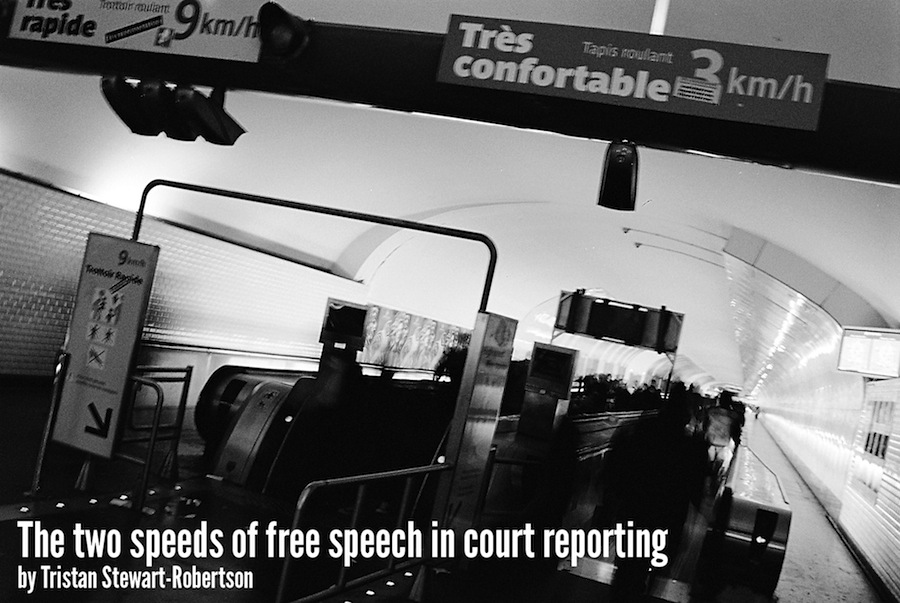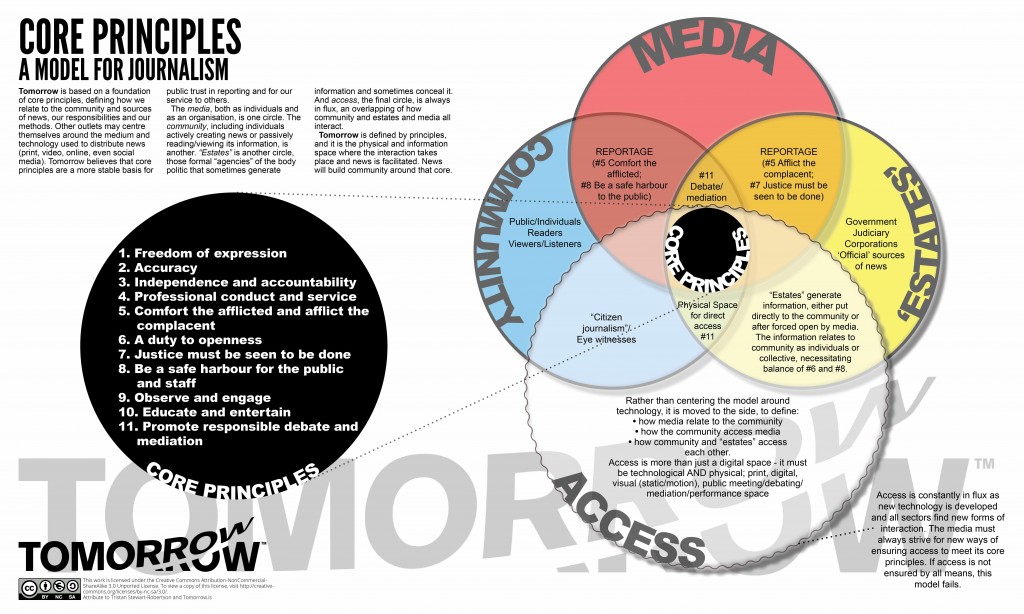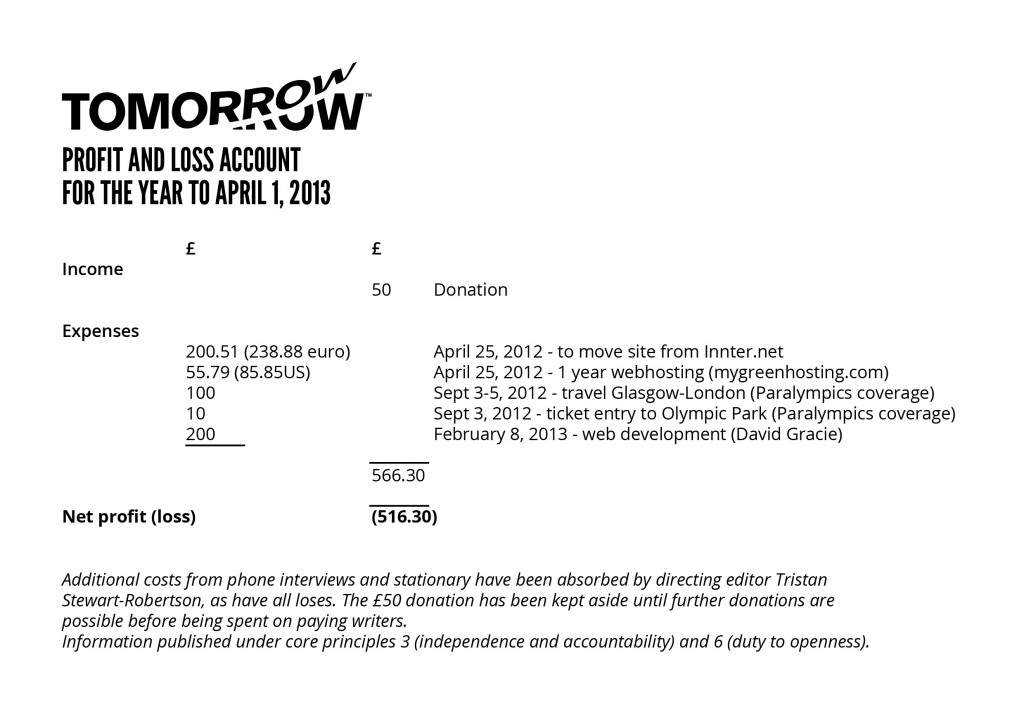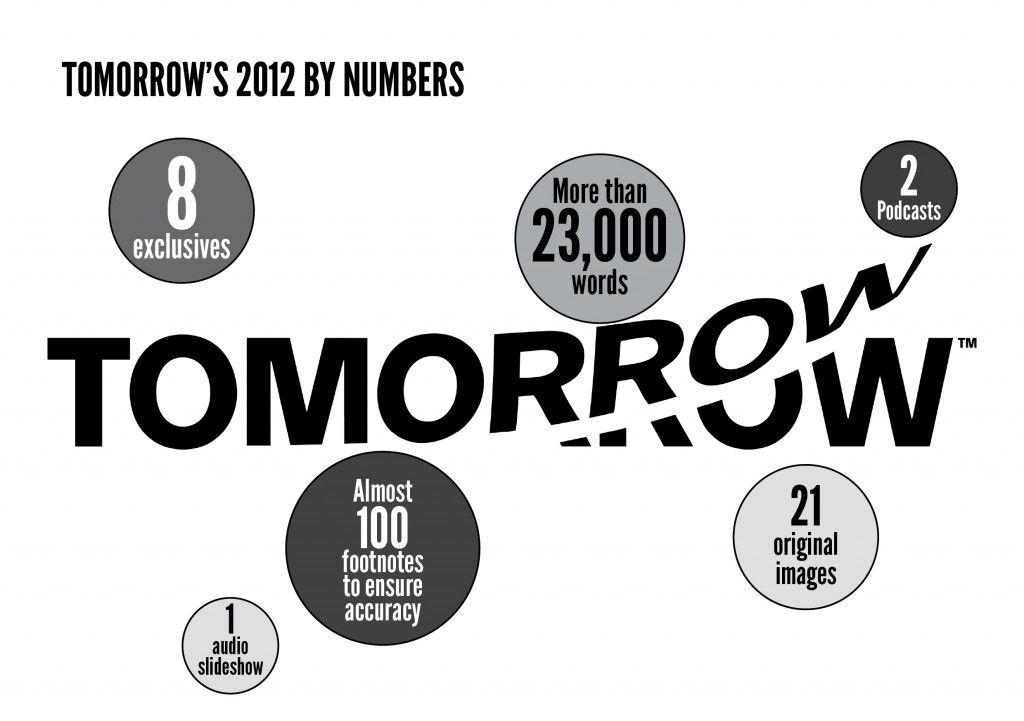While Tomorrow was offline after being hacked, the Leveson Inquiry in the UK published its report. The following statement was approved by five independent non-journalists.
***
Tomorrow’s directing editor, Tristan Stewart-Robertson, lives and works in the United Kingdom and is a member of the National Union of Journalists and abides by the Editors’ Code of Practice in his freelance work and shift reporting for newspapers. Because of last week’s report from The Leveson Inquiry in press standards, it is necessary to clarify Tomorrow’s position as a news organisation currently practising in the UK, though our servers are in Iceland and our reporting focused on Canada.
Every example of bad press practices, ethics and illegality cited in the Leveson report would have been blocked by Tomorrow’s core principles. All of these defining 11 points were created before the phone hacking scandal fully erupted in July 2011, but we still stand by the principles as written. They were established to deal precisely with the issue of trust, so fundamental to the current condition of journalism, and to position journalism back at the heart of community, simultaneously reporting for it, yet at the same time independent from it.
Our starting point is freedom of expression – we report on the basis of this first principle. But our right to report is then balanced by the subsequent 10 principles. They are all interconnected. For example, while justice must be seen to be done (principle 7), we must also protect vulnerable witnesses or alleged crime victims from identification (principle 8). While we must educate and entertain (principle 10), it must be accurate (principle 2). And if we make a mistake, we must promote responsible debate and mediation (principle 11) – ie we must ensure an arbitration with individuals where they dispute the accuracy or application of other principles at Tomorrow.
Also, being a safe harbour to the public and staff (principle 8) means we have to protect a measure of privacy to individuals (ranging from information such as bank details etc on a broad scale, to complete anonymity in specific cases such as rape victims). We must also protect our staff when they are in turn protecting sources, even under threat of imprisonment, so as to meet both principle eight and ensure the defence of principle one.
As well as dealing with data according to relevant laws, we apply the “safe harbour” principle to our work with information, specifically, the Three Laws for Digital Systems and Journalists:
- Digital systems must be designed to protect, to the fullest extent possible, personal data and its exchange and communication.
- Journalists must pursue all stories deemed to be in the public interest, even where that may require challenging the security of digital systems.
- Journalists must protect their sources as well as the innocent public to the same extent as the digital systems of the First Law, where it would otherwise render the impossibility of the Second Law.
Tomorrow intends to put in place a Citizens’ Jury system independent of our work – please see our explainer of this system [Feb 2013: Amendment of original post which referred to an independent panel].
Finally, Leveson’s report states:
“The internet does not claim to operate by express ethical standards, so that bloggers and others may, if they choose, act with impunity. The press, on the other hand, does claim to operate by and adhere to an ethical code of conduct.”
And:
“People will not assume that what they read on the internet is trustworthy or that it carries any particular assurance or accuracy; it need be no more than one person’s view.”
Tomorrow rejects the distinction between the press, as a profession, and the internet, as a medium. Tomorrow is part of the free press, and operates on the internet. We are founded on core principles precisely so that we can be trustworthy, with the internet allowing even greater proof of accuracy through links, footnotes, supplemental information and context beyond a newspapers limited space. The internet also helps meet principle six (a duty to openness).
Given Leveson’s basic failure to recognise the changing nature of journalism and the digital world, and furthermore to account for a balance of the freedom to express and report AND be governed by ethics and principles, Tomorrow cannot sign up to the regulation proposed by Leveson.
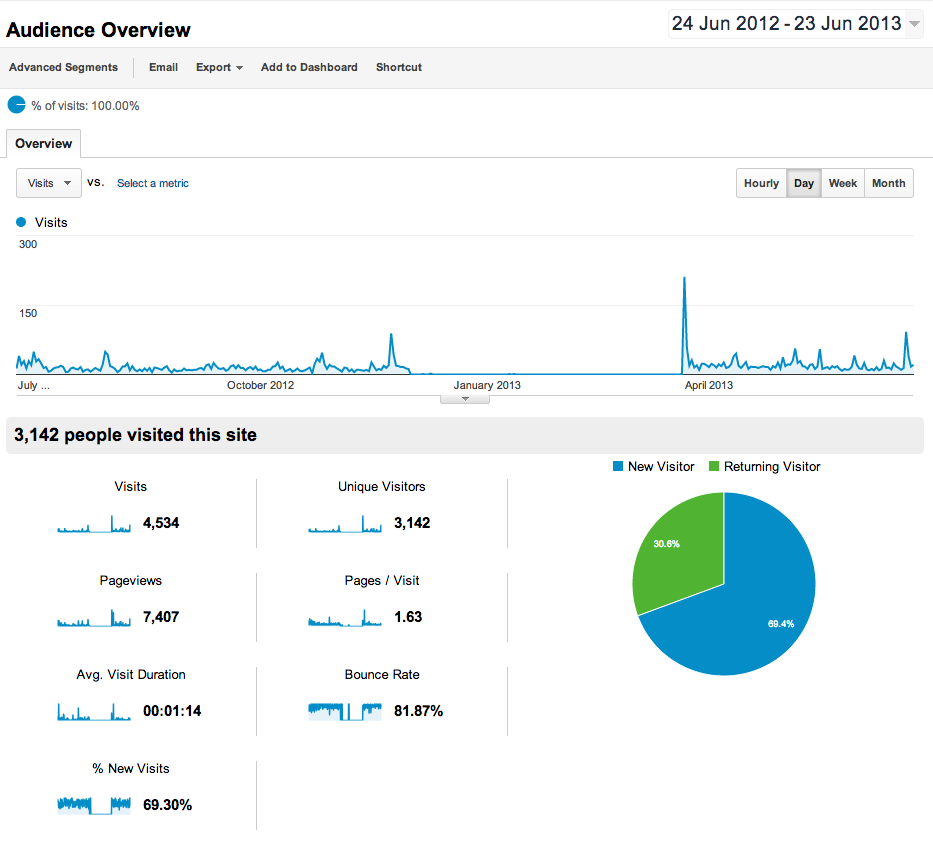 According to Google Analytics, we had 4534 visits, 3142 unique visitors and 7407 pageviews. On average, people spent 1 minute and 14 seconds on the site, considerably less than the time to read the many longreads, so that number must be taken with a grain of salt. You will notice from the screengrab that there was a lengthy gap when the site was down after we were hacked. It made for a challenging time in our first year.
According to Google Analytics, we had 4534 visits, 3142 unique visitors and 7407 pageviews. On average, people spent 1 minute and 14 seconds on the site, considerably less than the time to read the many longreads, so that number must be taken with a grain of salt. You will notice from the screengrab that there was a lengthy gap when the site was down after we were hacked. It made for a challenging time in our first year.
